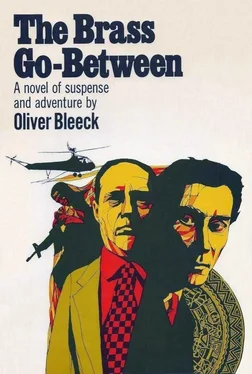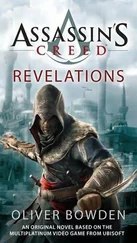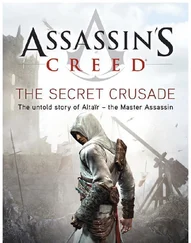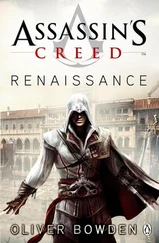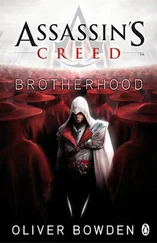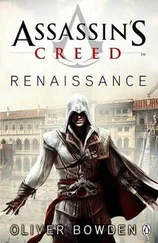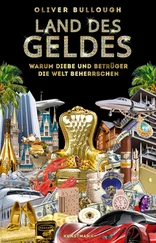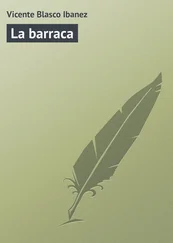Oliver Bleeck - Brass Go-Between
Здесь есть возможность читать онлайн «Oliver Bleeck - Brass Go-Between» весь текст электронной книги совершенно бесплатно (целиком полную версию без сокращений). В некоторых случаях можно слушать аудио, скачать через торрент в формате fb2 и присутствует краткое содержание. Город: New York, Год выпуска: 1969, Издательство: William Morrow, Жанр: Детектив, на английском языке. Описание произведения, (предисловие) а так же отзывы посетителей доступны на портале библиотеки ЛибКат.
- Название:Brass Go-Between
- Автор:
- Издательство:William Morrow
- Жанр:
- Год:1969
- Город:New York
- ISBN:нет данных
- Рейтинг книги:3 / 5. Голосов: 1
-
Избранное:Добавить в избранное
- Отзывы:
-
Ваша оценка:
- 60
- 1
- 2
- 3
- 4
- 5
Brass Go-Between: краткое содержание, описание и аннотация
Предлагаем к чтению аннотацию, описание, краткое содержание или предисловие (зависит от того, что написал сам автор книги «Brass Go-Between»). Если вы не нашли необходимую информацию о книге — напишите в комментариях, мы постараемся отыскать её.
Brass Go-Between — читать онлайн бесплатно полную книгу (весь текст) целиком
Ниже представлен текст книги, разбитый по страницам. Система сохранения места последней прочитанной страницы, позволяет с удобством читать онлайн бесплатно книгу «Brass Go-Between», без необходимости каждый раз заново искать на чём Вы остановились. Поставьте закладку, и сможете в любой момент перейти на страницу, на которой закончили чтение.
Интервал:
Закладка:
“Run for it,” Mbwato said, jerking his door open.
“Where?”
“Up there,” he said, pointing to a hill where I could see the outline of a statue of a man on a horse. “Henry Hill.”
It was three hundred yards away, all uphill. Mbwato opened the rear door and snatched out the shield. He slipped it over his left forearm and waved the sub-machine gun at me. “Make a run for it.”
There was a shot and the sound indicated that it came from near the parked Oldsmobile. The Ford’s rear window cob-webbed around a hole. I snatched up the automatic from the seat and ran around the car. Mbwato stood at the edge of the road and fired two bursts at the Oldsmobile. There was an answering shot. And then another.
“Let’s go,” he said, and started running up gently sloping Henry Hill which boasted not a rock, not a tree, not a bush. I ran after him. I had no place else to go. We were a third of the way up the hill when I heard the helicopter. It came in low, barely skirted a forest of trees to the left and settled gently to the ground near the statue of what I assumed to be a horse and General Thomas Jonathan Jackson, who once had stood like a stone wall and later was carried across a river and into some trees to die at thirty-nine.
There were two more shots. They came from behind us. Mbwato stopped and turned. He held the sixty-eight-pound shield out at his left side and fired the machine gun from his right hip. A long burst. Then a short one. I turned to see a man in a gray uniform fall to his knees and then sprawl forward on the grass. The second man in a gray uniform flopped to his belly. He carried a rifle and he seemed to be taking careful aim from the prone position. He fired once; then twice. Mbwato’s machine gun let off a burst and I turned. He stood there for a moment, a big, black man in a blue silk jacket, an African brass shield on one arm, a Swedish sub-machine gun cradled in the other. He stood there and lifted his face up to the sky and roared a long terrible cry. Then he fell backward onto the grass that sloped gently up to the top of Henry Hill where the helicopter and Stonewall Jackson waited for the black colonel who had a sneaking sympathy for the Confederacy.
I turned to face the man with the rifle. He was up on one knee and I lifted the automatic and squeezed the trigger twice, then three times, then four. It was luck. You shouldn’t hit anything at that distance with an automatic, but the third or the fourth bullet caught him and he dropped the rifle and clutched his stomach and then bent slowly forward to the ground.
I ran to Mbwato who lay face up on the grass. There were two small red stains, about the size of dimes, on his white shirt, just to the right of its buttons. He breathed harshly and his breath bubbled in his throat.
“Take it,” he said.
“Take what?” I said.
“The shield, you fool.”
“How bad?” I said. “How bad is it?”
“The shield, damn it,” he said, and lifted it up, all sixty-eight pounds of it, with his left arm. I tugged it off and put it on the grass.
“Take it to Ulado,” he said. “He’ll know what to do.”
“Okay,” I said.
He looked at me with those curiously gentle dark eyes, the man they called “The Rope,” and then he smiled that come-to-glory smile. “You have been, Mr. St. Ives, most gracious,” he said, and then he died.
I knelt there in the grass beside him just staring, and then there was a shout from the helicopter. I stuffed the automatic into my coat pocket, picked up the shield with both hands, and started toward the helicopter. I couldn’t see anything. The shield was in front of my eyes. I heard a shot. And then there was another and something twanged off the shield, knocking me backward. I dropped the shield. Two men in gray were coming down the hill from the right. Both held rifles and both of them were aimed at me. I pulled the automatic out of my pocket and fired blindly, but the two men continued to advance slowly, one careful pace at a time. They were still fifty feet away when I threw the automatic at them and bent down for the shield. As I straightened, one of them put his rifle to his shoulder and took careful aim. There was a sudden burst of fire from the helicopter and both of the gray-clad men dropped to the grass. I couldn’t tell whether they were hit. I didn’t care. I ran toward the helicopter. It wasn’t much of a run, not carrying sixty-eight pounds of brass uphill. A child could have caught me, a toddler. It was almost dark now and I guided myself by the sound of the helicopter and the light in its plastic-domed nose.
Hands reached out and took the shield from me. “Inside, Mr. St. Ives,” a voice said, and I recognized it as belonging to Mr. Ulado, who lifted the shield into the rear of the four-place machine. When it was stowed away he picked up a sub-machine gun that was the twin of the one that Mbwato had had and in a casual, practiced way loosed another burst at the two men with rifles.
“They must have circled around,” I said, because I couldn’t think of anything else to say.
“Get in,” Ulado said. “Where’s Mr. Mbwato?”
“He’s dead,” I said. “Halfway up Henry Hill.”
“You’re sure?”
“Yes.”
“Get in.”
I climbed into the back. Ulado got in the seat next to the pilot, a slim young Negro who wore a green velour shirt and a coconut straw hat with a plain black band. “Dulles,” Ulado barked at him, and the young Negro nodded and shot the helicopter up.
Ulado turned around in his seat to face me. “The pilot,” he yelled. “Trained in Vietnam.” I nodded and sank back in the hard canvas seat. It was a short hop, not more than ten minutes, if that. The pilot talked over his radio to the tower and set the copter down not far from the main terminal. Ulado got out and I crawled after him. He reached into the cockpit of the machine and wrestled the shield out.
“Mbwato said you’d know what to do with it,” I said.
Captain Ulado nodded gravely. “I do, Mr. St. Ives. May I thank you for all your help. We say good-by here. I have a plane standing by on the runway.” He put the shield down so that it rested against his left leg and held out his right hand. I shook it.
“You’ll never know how much we appreciate your efforts,” he said, picked up the shield, turned, and walked off into the dark. I started to call after him, to tell him that he’d forgotten his sub-machine gun, but perhaps he didn’t need it any more.
I walked toward the terminal, found my way up to the main lobby, and then located someone who could tell me what I wanted to know. “You have a chartered plane leaving here in a few minutes with a friend of mine on board,” I said. “I think it’s a prop job.”
The man in blue uniform flipped through some cards on the counter. “Yes,” he said. “A Constellation. Chartered by a Mr. Mbwato — I think that’s how you pronounce it.” He turned and looked at the clock on the wall behind him. “It should be departing any moment now.”
“Could you tell me its destination?” I said.
“Sure,” he said. “Rotterdam.”
Chapter twenty-five
At eight o’clock the next morning I was lying in a bed in the room at the Madison, staring up at the ceiling, and waiting for someone to come and take me away when the telephone rang. It was a Miss Schulte who said that she worked for Hertz.
“The car that you reported stolen has been found in Silver Spring, Mr. St. Ives. That’s in Maryland. It was undamaged except for the rear window, which apparently has a bullet hole in it.”
“I wonder how that got there?” I said.
She said that she didn’t know but that the insurance would take care of it. Then she asked whether I would like to come down to pay for the rental or would I like her to bill me. I told her to bill me and she said that would be fine.
Читать дальшеИнтервал:
Закладка:
Похожие книги на «Brass Go-Between»
Представляем Вашему вниманию похожие книги на «Brass Go-Between» списком для выбора. Мы отобрали схожую по названию и смыслу литературу в надежде предоставить читателям больше вариантов отыскать новые, интересные, ещё непрочитанные произведения.
Обсуждение, отзывы о книге «Brass Go-Between» и просто собственные мнения читателей. Оставьте ваши комментарии, напишите, что Вы думаете о произведении, его смысле или главных героях. Укажите что конкретно понравилось, а что нет, и почему Вы так считаете.
